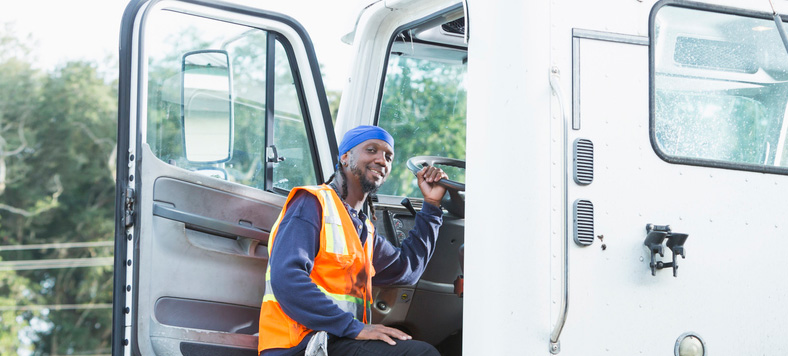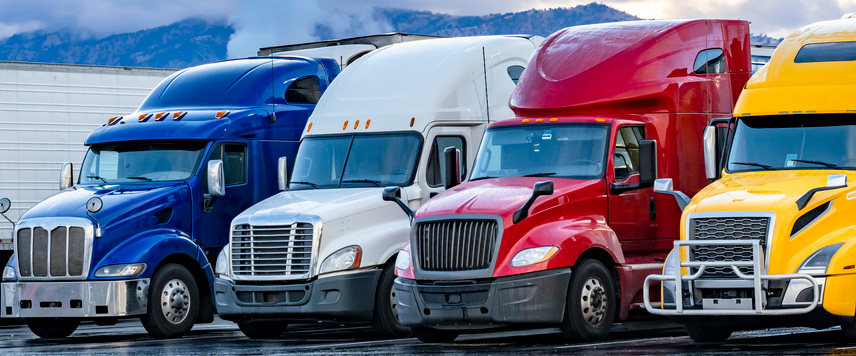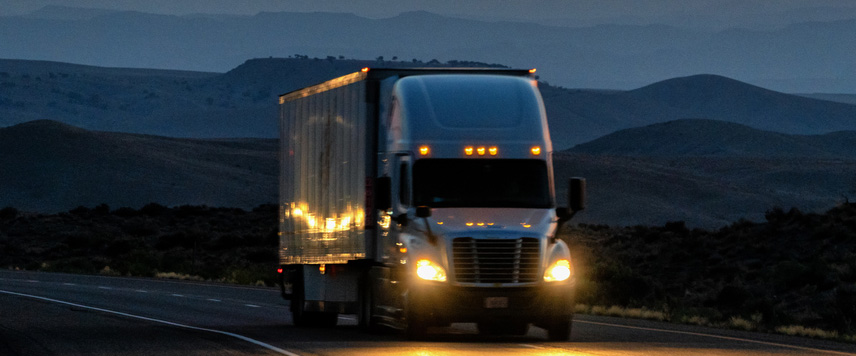What is holding young people back from exploring a career in trucking? Trucking is a well-paying, rewarding career but does offer some downsides that are important to young Millennials and Gen Z. It is not all negative; Gen Z is determined to have a successful life without being bogged down with student loan debt like the previous generations. Trucking provides an opportunity to earn a comparable living to their college-educated peers without taking on massive debt.
To overcome the shortage of drivers, it is crucial that we understand and be able to counter the objections that young people have to the profession. Today, we will review these issues that may keep young people from joining this important profession.
Time Away from Home
Work/Life balance is important to all of us, but, for young Millennials and Gen Z, this is a key factor in deciding which fields they wish to pursue. Gen Z is a generation in need of human contact. Finishing out their formative high school years remotely and missing out on developing strong social bonds has created a lonely generation. Life on the road away from friends and family is daunting. While many of those who ended their high school careers under covid lockdown are not yet old enough for interstate travel, this generation looks to the future. They are aware of the career path for trucking and see the progression of this career as one that will take them from home and continue to sever their tenuous connections with people outside their immediate family.
The Nature of the Work
For Gen Z, there is little interest in the long hours involved in trucking. Many drivers often have 14-hour workdays; some of those hours are unpaid and do not match this age group's desires. Young people are looking for a normal 8-hour workday and do not want to spend their entire life at work.
This group is also interested in joining professions with a clear path for advancement. They are not interested in a career offering little room to climb the ladder. There is concern that if drivers are in such short demand, there will be little opportunity to be promoted to management and leave the truck.
Not a Generation of Drivers
Young Millennials and Gen Z are not a generation of drivers. There has been a decline in young people obtaining a driver's license over the last 40 + years. In 2020, only 58% of 18-year-olds had a driver's license compared to 1980, when 80% of 18-year-olds held a driver's license.
What is holding them back from the road? There is a combination of factors. For some, it is the environmental impact of cars and trucks and an overall lack of interest in cars. Others do not feel the call to freedom that cars offered previous generations; it is too easy to get around via Uber and Lyft.
This is also a generation that sadly sees the bad before they see the good and is stressed behind the wheel, knowing the potentially deadly outcome of crashes. Unlike previous generations, whose youth gave a sense of immortality, this generation is keenly aware that they are not invincible. So, the question becomes, how do we get a generation that won't even drive themselves to work, to drive for a living?
Push Back from their Families/ Society
Rightly or wrongly, trucking is not a career that has prestige, like being a doctor, lawyer, teacher, etc. Young Millennials and Gen Z are the children of Gen X. We, Gen Xers, were raised to believe that college is the only way to succeed. Even with many of us still struggling with student loan debt, Gen X pushes their children to obtain a college education.
And it's not just the parents pushing the ideal that college = success. Schools today are doing more to push technical career paths; students on those paths are still often treated as second-class citizens by their schools. If you are not "college material," many schools pass you on with little interest in ensuring you gain the knowledge you need to succeed in today's world.
According to an article by NBC, the reluctance for their children to join the trucking profession is felt even among truck driver parents. "It is common for a speaker at a trucking conference to ask the crowd to raise their hands if they hope their children become truck drivers," said Neil Abt, senior editor at Fleet Owner, who was interviewed for the article. "Few, if any, ever raise their hands."
Health Concerns
Unlike many previous generations, Gen Z is concerned with their health at a younger age. This generation is concerned about developing co-morbidities that will leave them vulnerable to the next pandemic. Because of this focus on health, they are worried about the effects of a sedentary lifestyle on their health. For more information on the trucking industry's health concerns, please see Trucking Industry Recruitment: Driver Health and Wellness.
Technology
If you read much on the question of enticing young drivers to the profession, you will undoubtedly notice that everyone calls for you to hype up technology in your recruitment. While there is no doubt that Gen Z are true digital natives. It is important to note that while they are digital natives, they don't like tech for tech's sake, like Millennials. They prefer tech that actually streamlines and improves processes. When it comes to communication, they prefer face-to-face or direct communication, like the phone. While technology is important to Gen Z, an aspect of trucking technology concerns anyone considering making this their career, autonomous trucks.
According to research by A. Mohan and P. Vaishnav, Impact of automation on long haul trucking operator-hours in the United States, self-driving trucks are set to change the truck driving profession radically. The study shows the results based on different rollout scenarios for autonomous trucks, from the lesser impacting use only in the southern states to the dramatically impacting rollout nationwide. They estimate that with a nationwide rollout, the impact would be roughly 94% of all long-haul hours being lost and that new, shorter route hours will not be enough to compensate for hours lost to drivers.
As young people start taking steps to begin their careers, they want to be sure that there will be a career for them ten years later. As this study suggests, if over-the-road hours are cut by 94%; there may be too many drivers competing for the shorter in-town routes left available.
Age
Age is an issue for Gen Z (born 1997- 2012), affecting their ability to pursue a career in trucking. You must be 21 years of age to drive interstate. While the oldest Gen Zers are 25, most are still under 21. The Safe Driver Apprenticeship Program is set to change this barrier by allowing drivers between 18-20 with an intrastate CDL to work interstate under their program. This pilot program is just now getting underway, accepting applications from companies that want to be involved with the pilot program.
Conclusion
Driving is a career that offers many benefits but some challenges that can be turn-offs. Understanding what those objections can be gives companies the chance to make adjustments to lesson these negatives. For recruiters, understanding the objections gives you the ability to craft your pitch in such a way to negate these issues.
Our next article in this series will look at the programs out there to reach young people and promote truck driving as a career.
Are you not meeting your recruitment goals? Join LzRecruit Network! We offer 100% direct leads. Lower your Cost Per Lead and Time to Hire today. For more information on the LzRecruit Network, contact us at 800-755-0623.
_____________________________________________________________________________
Debra_lz
Debra Watkins covers recruitment and digital marketing for Lionzone. A Nashville native, after graduating from the University of Kentucky, Debra utilized her research and writing skills in the museum and heritage tourism fields, rising to director of two institutions, before returning to Nashville in 2020 to join Lionzone.
Resources:




